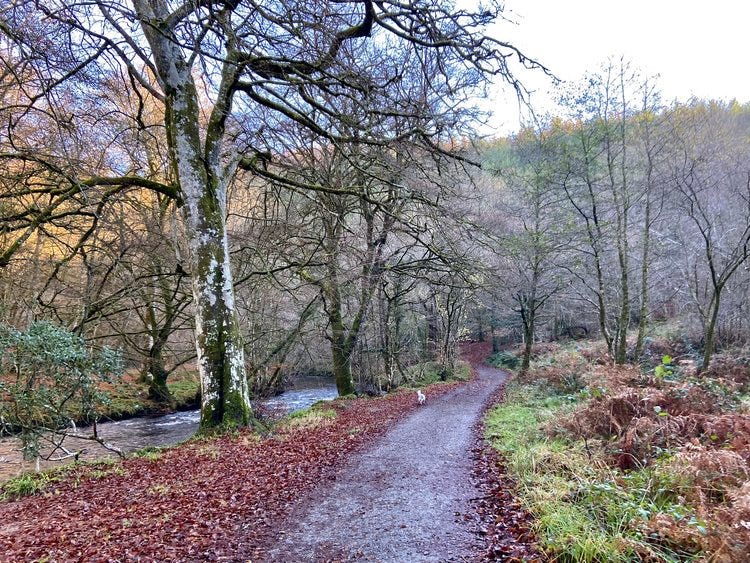Hi Friends,
It has been seven weeks since I committed to writing and sharing my ideas online. While therapeutic, this has also been one of the hardest things I've ever done.
I know I need to write a lot if I want to deepen the quality of my writing. But pressing publish regularly means, by definition, releasing something into the world before it seems totally ready.
One of the worst parts of the “blank slate syndrome” is the feeling that you might have nothing to say. Often, we actually have too much to say and are struggling to find the line of a story that makes an interesting essay. That’s why this week, I’m embracing Charlie Bleeker’s theory of Fun Sized Ideas.
“When we embrace the Publishing Paradox and share our Fun Size Ideas each week, we build our body of work little-by-little, piece-by-piece, brick-by-brick, until eventually, much later, we look back at everything we’ve written and say, “Oh, there’s my world view. There’s my big idea.”
Digital Gardening
I'm testing out a new format for ideas that aren't (yet) full essays. I'm publishing these in the spirit of writing in public, and welcome (beg for!) your comments on this new section of the website.
This week I've been thinking about why Write of Passage, the online writing school I recently graduated from, was so successful at building community and trust quickly in a completely remote environment. In five weeks, I shared fears, deep laughter and made friends I zoom with weekly.
As teams big and small debate whether or not they will return to collaborating in offices, it is important to understand vibrant, robust online communities. These communities that are already working know how to facilitate remote and asynch work. In Write of Passage we had a shared goal, and the community helped me achieve my goals at least as much as the course material did.
You hear tech companies talk a lot about their "community" — but what does it really mean to successfully create a community?
Making Friends Online
I didn’t believe in making friends online until this year. I had heard of Bumble BFF, and was curious about how the internet was changing our relationship to everything around us, but I figured I was too “old fashioned” to really connect with someone I had never met in person. This fall I not only learned that making friends online can feel even more natural than doing so in person, but I also felt like I got a little glimpse into the future of online communities and collaboration.
As teams big and small debate whether or not they will return to collaborating in offices it is important to understand vibrant, robust online communities. Write of Passage did a few things right in making it easy to make friends quickly, things that anyone looking to build a community online can learn from.
A Shared Goal
Only about a third of American workers are actively engaged in their work (source). Not everyone at university is there for the pure pursuit of knowledge. We have a lot of reasons why we might end up in various communities. The Write of Passage experience is effective at turning online communities into friendships because people have shared goals and have made a shared commitment (in this case, time + $$). DAOs are demonstrating how powerful online communities with shared goals can be. It can be easy to assume that everyone who shows up is there for the same reason, but setting purpose and creating alignment is really important - this goes for businesses, courses, or other communities.
Light, Regular Contact
It can be really hard to coordinate schedules with your "IRL" friends. My book club in Nairobi only met every 2-3 months.
Online friends easily have short and regular interactions: a response to a tweet, a comment on an article. It's like a giant whatsapp group but all about ideas. Through light and regular contact that is often coming through small group broadcasts instead of 1:1 conversations, I have a better idea of what my online friends are thinking about than those that I live in the same city as.
The important thing here is that online communities can encourage frequent and easy interaction, which can actually be deep conversation if you follow each other down those rabbit holes of ideas. You are talking to your friends and followers, but also broadcasting to other future friends what you are all about.
A Space to be Vulnerable
"We only get close by revealing things which would, in the wrong hands, be capable of inflicting appalling humiliation on us."
This quote from the School of Life sums it up.
It can take years or it can take minutes to get to this point with someone. If vulnerability is important in creating true friendships, building any community is at least partially about building the space and circumstances for people to be vulnerable around each other.
Write of Passage does this first by putting everyone in a situation where they are asking for help, and helping others. By sharing your writing, you are opening yourself up. When someone takes that piece of you, and responds in a supportive way, it creates a virtuous cycle where everyone is encouraged to be vulnerable and grow stronger together.
Vulnerability, light but regular contact and shared goals and values are at least the start of a good recipe for building online friendships. How much more fun would zoom meetings and online conferences be if organizers thought about how to cultivate friendships amongst participants in their program design? I’m excited to be a part of this evolving space, and please get in touch with comments and ideas to add to this recipe.
This week I’m settling into the UK, taking long walks with my dog Kai, learning about allotments, and listening to the BBC4. Here is a peaceful moment from Dartmoor National Park.
Until next time,
Melissa

